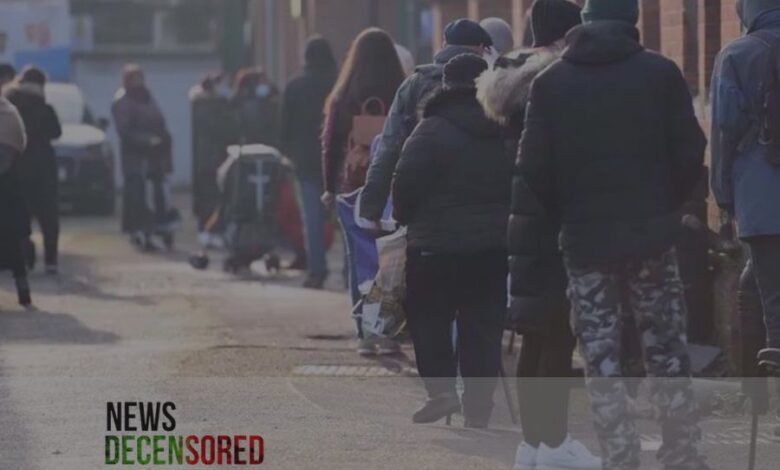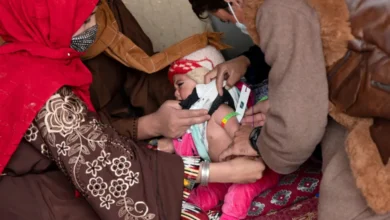Soaring Energy Prices Push Millions in UK Deeper into Absolute Poverty

New figures reveal a grim reality: the energy price crisis has triggered the sharpest rise in absolute poverty in the UK in three decades. The data, compiled by the Department for Work and Pensions, paints a concerning picture of hundreds of thousands of people falling below the poverty line due to steep price increases following Russia’s invasion of Ukraine.
The number of people in absolute poverty in the UK jumped to 12 million in 2022-2023, a staggering increase of 600,000 compared to the previous year. This translates to a rise in the absolute poverty rate of 0.78 percentage points, bringing it to a concerning 18%.
The measure of absolute poverty is a key indicator used by the Prime Minister to track the government’s progress in tackling poverty. However, the figures suggest that without government support measures, the situation would have been significantly worse.
Work and Pensions Secretary Mel Stride, whose department produced the report, highlighted the government’s “biggest cost of living package in Europe, worth an average of £3,800 per household.” According to the government, this intervention prevented an additional 1.3 million people from falling into poverty during the measured period. Additionally, Mr. Stride pointed to rising pensions and benefit levels implemented this year, which build upon a previously announced 10% increase.
The impact of the crisis, however, has not been evenly distributed. While the absolute poverty rate among pensioners remained relatively stable, the number of children and working-age adults in poverty each rose by around 300,000. This translates to a particularly worrying statistic: a quarter of children in the UK are now living in absolute poverty. This two-percentage-point increase in child poverty represents the highest recorded rise since at least the mid-1990s.
Understanding Poverty Measurement
The UK government utilizes two primary measurements of low income: absolute poverty and relative poverty. Income is calculated based on the money available to a household after accounting for housing costs.
Absolute poverty specifically focuses on the number of people who cannot afford a minimum acceptable standard of living in a given year.
The Department for Work and Pensions currently defines this standard based on the living costs affordable by an average income in the year ending March 2011. Households with incomes falling 40% below this adjusted baseline are classified as living in absolute poverty.
Relative poverty, on the other hand, measures the number of people whose income falls below 40% of the current average income.
A Harsher Reality Beyond Statistics
While absolute and relative poverty statistics provide a general picture, they may not fully capture the true living standards of the poorest in the UK. Being classified as poor under these definitions doesn’t necessarily translate to an absolute inability to afford basic necessities like food or heating a home.
However, when considering other measures of deprivation, the situation appears even more concerning. Sam Ray-Chaudhuri of the Institute for Fiscal Studies points out a significant increase in food insecurity, with the proportion of individuals facing this issue rising from 8% to 11%.
The number of people unable to adequately heat their homes more than doubled, from 4% to 11%. This concerning trend extends even to pensioners, despite a slight decrease in the headline poverty measure for that demographic.
Furthermore, the figures reveal a rise in food bank usage, with the number of people relying on them in the past month jumping from 0.9% to 1.5%.
Political Reactions
The opposition Labour Party expressed horror at the statistics, contrasting their own record on reducing child poverty with that of the Conservatives. “The Conservative government crashed the economy and unleashed a cost of living crisis, pushing families across the country into poverty,” stated shadow employment and social security minister Alison McGovern.
The Liberal Democrats called the figures a “wake-up call moment.” “This is a devastating rise and behind these numbers will be stories of children going hungry and families unable to heat their homes,” said the party’s Treasury spokesperson Sarah Olney.
The new figures highlight the severe impact of the energy price crisis on millions of households in the UK. While government interventions have provided some relief, the data exposes a worrying rise in poverty across the nation, particularly among children and working-age adults. Addressing this pressing issue will necessitate continued efforts and effective strategies to ensure all residents have access to a decent standard of living.




